
The AIgorythm project

Playwright and actor
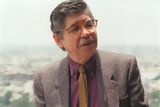
Novelist

Writer and poet

Volleyball player

Italian-Peruvian naturalist and geographer

Singer and percussionist

Last Inca emperor

Politician, former prime Minister

Journalist and TV host
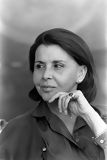
Poet

Inca warrior
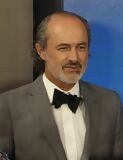
Actor and comedian

Biophysicist

Poet

Doctor and researcher
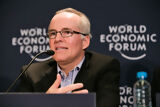
Businessman, Interbank group

Journalist and writer
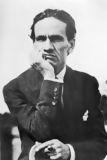
Poet and writer
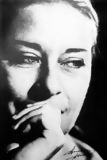
Singer and songwriter
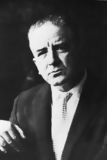
Writer

Film director, Berlin Golden Bear winner

Football player
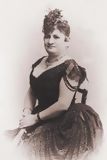
Writer and journalist
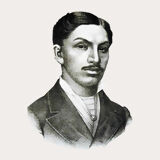
Doctor and scientist

Photograph

Chess player

Industrialist
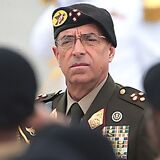
Former general

Specialist in public health

Actress and singer
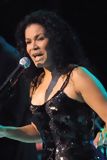
Afro-Peruvian music singer

Mathematician and engineer

Indigenous chronicler

Neurologist and anthropologist

Painter

Football player
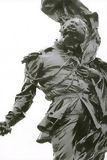
National hero, military leader

Intellectual and reformer

Chef and entrepreneur

Fashion designer
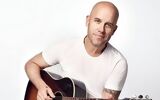
Singer-songwriter

TV presenter

Marathon runner

Indigenous Peruvian chronicler

Theologian

Former national team captain

Economist and former health minister

Inca princess

Writer and television host

Folk musician

Poet and guerrilla
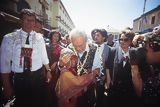
Former UN secretary-general

Chef, known for fusion cuisine

Football player

Peruvian aviation pioneer

Poet and artist
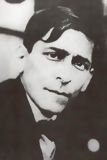
Marxist philosopher and writer

Industrialist and businessman
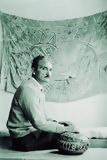
Novelist and ethnologist

Painter and muralist

Opera tenor

Fashion designer

Cardinal of Lima

Peruvian tennis player

Football coach

Leader of the indigenous rebellion
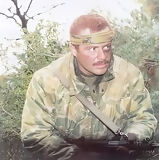
Military hero

Latin singer
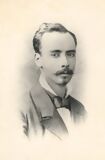
War of the Pacific hero

The youngest mother in history

Politician
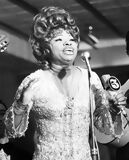
Creole music singer

Tennis player
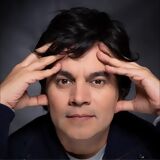
Musician

Writer and politician

Politician and founder of the Christian Democratic Party

Founder of Sodalitium Christianae Vitae

Archaeologist and anthropologist
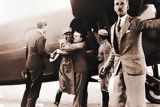
Military leader and politician

Television host
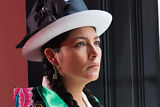
Actress and singer
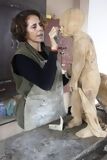
Contemporary sculptor
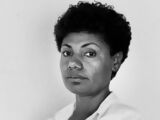
Women’s rights activist

Beauty queen

Astrophysicist

Heroine of independence
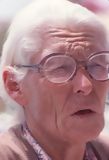
Mathematician and archaeologist

Historian and anthropologist
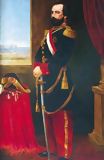
Military figure and historical figure
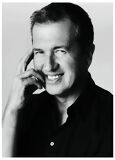
Fashion photographer
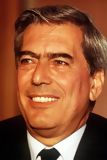
Writer, Nobel Prize in Literature, Politician

Revolutionary leader
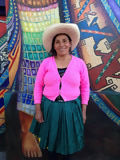
Environmental activist

Leader of the indigenous rebellion
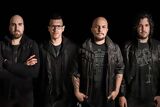
Musician from Gaia band
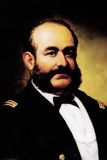
War hero
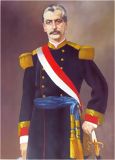
Military leader and politician

Chef, known for Nikkei cuisine

Volleyball coach and former player

Environmental activist

Television personality

Writer
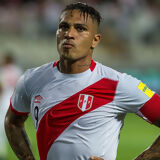
Football player

Epidemiologist and former health Minister

Inventor and aerospace pioneer

Soldier and inventor
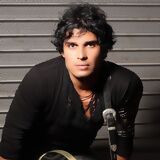
Rock singer

Chef and co-owner of Central restaurant

Painter

Football player

TV presenter and actress
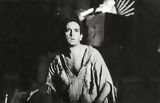
Actor
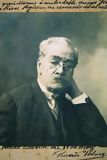
Writer and historian

Journalist and lawyer

Archaeologist, founder of Caral site
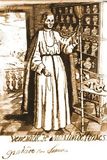
Monk and Saint
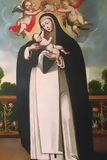
Saint, patron of Latin America

Physicist and engineer

World champion surfer

Actress

Oncologist
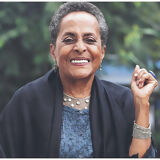
Singer, Latin Grammy winner

Former mayor of Lima
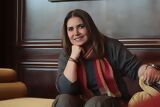
Singer

Actress

Former football player

Painter
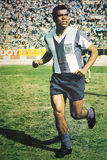
Former football player

Painter

Inca leader

Archbishop, saint
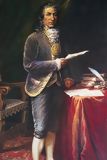
Leader of the indigenous rebellion

Revolutionary indigenous leader

Diplomat and intellectual

Sculptor and painter
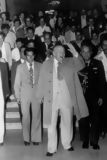
Political leader, founder of APRA

Lawyer and Former prime minister

Chef of Central restaurant
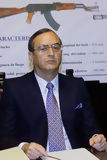
Former head of secret services

Popular singer

Fashion designer

Exotic music singer
Mario Vargas Llosa, born on March 28, 1936, in Arequipa, Peru, is one of the most renowned Latin American writers of the 20th and 21st centuries. He is also a prominent intellectual, political figure, and winner of the 2010 Nobel Prize in Literature. His extensive body of work includes novels, essays, plays, and journalistic articles, covering a wide range of topics from political and social issues to personal reflections on art and literature.
Vargas Llosa grew up in a middle-class family in Peru, spending part of his childhood in Bolivia after his parents separated. He later returned to Peru to continue his education. It was in Lima that he discovered literature and decided to become a writer. He began publishing short stories in literary magazines at a young age.
In 1958, he earned a scholarship to study in Madrid, Spain, where he completed his doctorate. This period marked an intense literary and political engagement. His dissertation was on Gabriel García Márquez, a fellow prominent Latin American writer, with whom he later had a complex and sometimes contentious relationship.
Vargas Llosa's first novel, The Time of the Hero (1963), was a critical and commercial success. It is a raw, realistic portrayal of life in a military boarding school in Peru, inspired by his personal experiences. This book earned him numerous awards and established his international reputation.
His second novel, The Green House (1966), further cemented his status as a major writer. This book, known for its complex narrative structure, is another example of his talent for exploring social and political themes through richly drawn characters. Vargas Llosa’s prose is often characterized by non-linear storytelling and innovative use of time structure.
Mario Vargas Llosa was a key figure in the literary movement known as the "Latin American Boom," a phenomenon that saw the emergence of a generation of Latin American writers who gained international recognition in the 1960s and 1970s. This movement included writers such as Gabriel García Márquez, Julio Cortázar, and Carlos Fuentes.
At the heart of the "boom" were novels that combined elements of magical realism, social and political critique, and narrative innovation. Vargas Llosa, although more grounded in social realism than some of his contemporaries, contributed to this literary explosion with poignant stories that denounced social injustices and abuses of power in Latin America.
In addition to his literary career, Mario Vargas Llosa became actively involved in politics, both in Peru and internationally. In the 1980s, he emerged as a major voice against authoritarian regimes in Latin America, opposing dictatorships on both the left and the right. His political thinking evolved towards liberal ideas, advocating for democracy and human rights.
In 1990, he ran for president of Peru but was defeated by Alberto Fujimori. This loss marked a turning point in his political life. Disillusioned with the outcome of the election, Vargas Llosa distanced himself from Peruvian politics, though he continued to speak out on global issues through articles and speeches.
Among Vargas Llosa’s most important works are novels that explore themes of liberty, authority, and power. The War of the End of the World (1981) is one of his most ambitious novels, inspired by a real conflict in Brazil at the end of the 19th century. The book deals with the struggle between government forces and a religious rebel community.
The Feast of the Goat (2000), another of his most celebrated novels, focuses on the dictatorship of Rafael Trujillo in the Dominican Republic. This historical novel offers a gripping portrayal of authoritarian power and its devastating effects on society and individuals. The Feast of the Goat is widely regarded as one of Vargas Llosa’s best political novels.
Mario Vargas Llosa has received numerous accolades for his literary work. In 1994, he was made a marquis by King Juan Carlos of Spain for his contributions to literature. In 2010, he was awarded the Nobel Prize in Literature "for his cartography of structures of power and his trenchant images of the individual's resistance, revolt, and defeat."
Vargas Llosa is also a member of the Spanish Royal Academy and has taught at prestigious universities around the world, including Harvard and Oxford.
In addition to his novels, Vargas Llosa is a prolific essayist. His essays cover a variety of topics, including literature, politics, and culture. He regularly writes for newspapers and journals, sharing his reflections on the state of the world. His commitment to freedom of expression, democracy, and human rights is evident throughout his writings.
He has never shied away from taking controversial positions, and his intellectual work has garnered both admiration and criticism from various political factions. His voice remains one of the most respected among contemporary writers and thinkers.
Today, Mario Vargas Llosa is recognized as one of the giants of world literature. His work is studied worldwide, and he continues to influence new generations of writers. Through his novels, essays, and political engagements, he has left an indelible mark on his era and has helped shape the debate on issues as diverse as freedom, power, and the human condition.